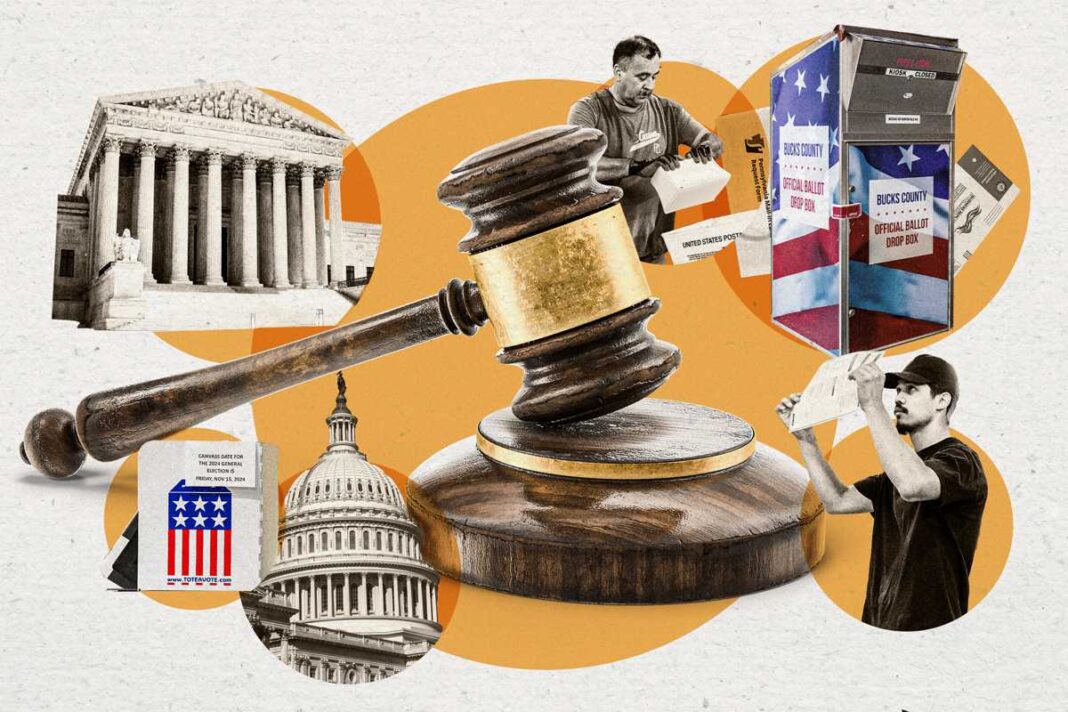Lawsuits include those about procedures for certifying elections, which ballots should be counted, and the accuracy of state voter rolls.
The run-up to the 2024 election has seen a number of consequential court cases and rulings related to how voters cast their ballots and how governments process the election results.
Some of the cases remain ongoing, and if 2024 is anything like 2020, the nation could see a flurry of lawsuits after Election Day with candidates also challenging the outcomes.
It is, however, unclear how far any legal case will go, with experts doubting that a Supreme Court case will result from the ongoing slate of legal challenges.
“Judges throughout the country … are loath to be perceived as disenfranchising individuals,” Landmark Legal Vice President of Legal Affairs Mike O’Neill told The Epoch Times.
“If they have an exit ramp to either dismiss a case or a procedural exit ramp to dismiss a case, they’re going to take [it]—even despite the fact that there might be evidence of either some sort of failure to follow proper procedures or failure to follow necessary registration procedures.”
Here are some legal issues to watch heading into November.
Mail-In or Absentee Ballots
Perhaps the most contentious election issue in 2020 was the widespread use of mail-in ballots, brought on by the government response to the COVID-19 pandemic.
A survey from the U.S. Election Assistance Commission, a federal body established by Congress, showed that the number of mail-in ballots increased by 20 percent between 2016 and 2020.
“Because we’re no longer in the COVID situation, we’re not going to see the same level of court-driven outcomes in our elections,” Public Interest Legal Foundation President J. Christian Adams told The Epoch Times. “I think that’s the big difference between now and 2020.”
A recent lawsuit in Pennsylvania, one of the more hotly contested states in 2020, dealt with how to process mail-in ballots that lack proper dates and other information. A practice known as ballot curing allows voters to correct deficiencies in their ballots after submitting them.
By Sam Dorman
Read Full Article on TheEpochTimes.com









